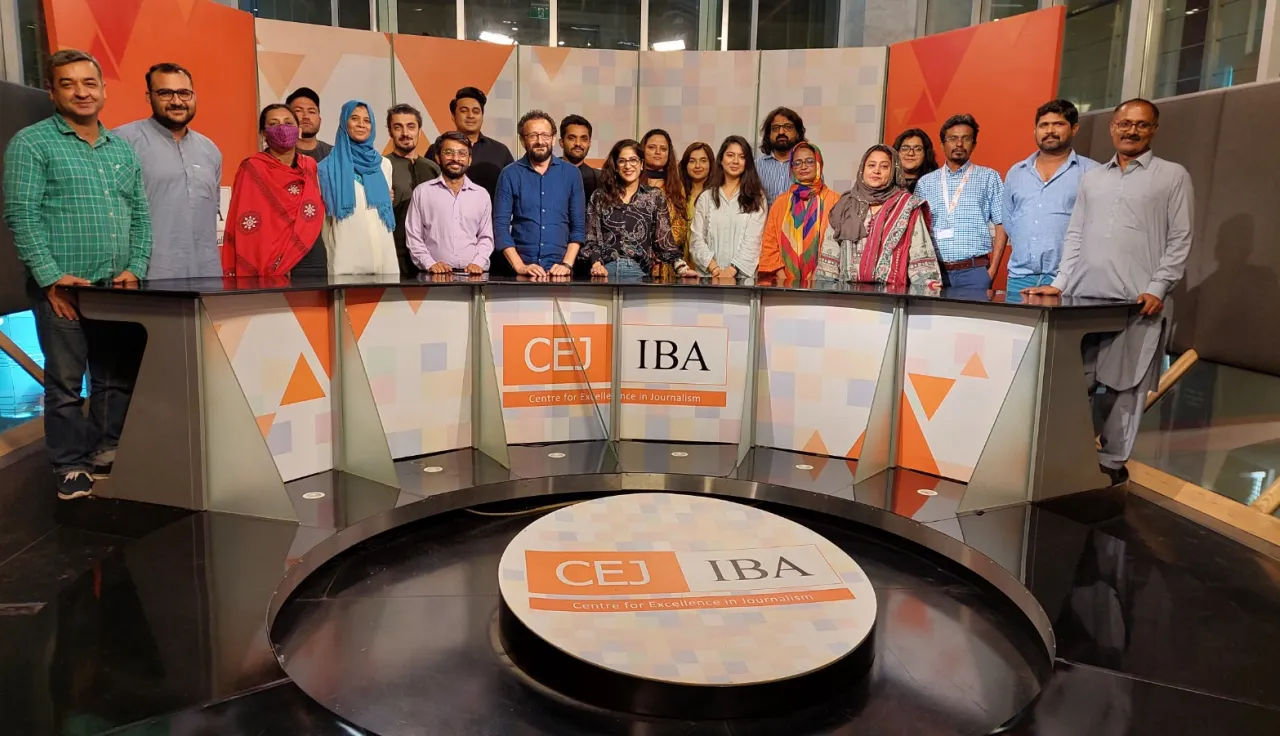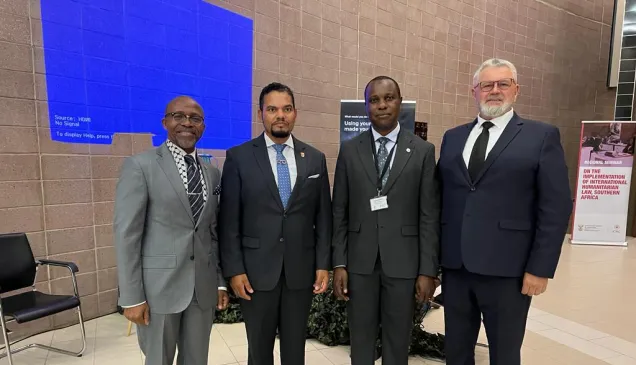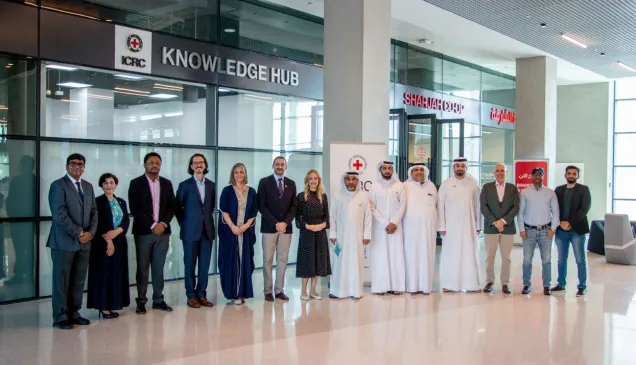Pakistan: Journalists trained to report on climate change, impact on communities

The impacts of climate change are deeply intertwined with local patterns of inequality and those who are already marginalized or in vulnerable situations are usually at highest risk. To highlight this, the Centre for Excellence in Journalism (CEJ) – IBA and the International Committee of the Red Cross (ICRC) organized a workshop for journalists titled "Reporting on Climate Change: Making the Invisible Visible", on 2–3 August.
Centred around building the technical knowledge and skills of journalists, the workshop's objective was to promote responsible and inclusive reporting on the way climate change is playing out locally. "It is imperative that we place local communities at the heart of our stories and highlight the indigenous impacts of climate change that are otherwise absent from mainstream media coverage," said Shahzeb Jillani, veteran journalist and lead trainer for the workshop.
Thirteen print, broadcast and digital journalists from various media organizations attended the workshop. Malik Amin Aslam, former minister for climate change, Dr Nausheen Anwar, director of Karachi Urban Lab, Sardar Sarfaraz, chief meteorologist, Karachi, Dr Sher Muhammad, glaciologist at ICIMOD, and Maaz Tanveer, head of communications for HANDS, Pakistan, led the sessions.
"We have turned cities of gardens into cities of concrete. There are too many policies and negligent implementation. We need to move towards clean, nature-based solutions to this crisis," said Malik Amin Aslam, commenting on the need for a consolidated national response to climate change.
Participants learned more about the science of climate change, disaster risk reduction and management, politics and science of global climate change and progress on the government's national response to this phenomenon.
Experts warned of the life-changing consequences of inaction on climate change and urged reporters to connect climate science with local priorities. "If we do not control the average temperature by 1.5 degrees by the end of this century, two-thirds of our glaciers will disappear, for which no substitute is available," said Dr Muhammad.
The workshop is part of the ICRC's larger humanitarian reporting initiative in Pakistan. Initiated in collaboration with CEJ in 2017, it is a comprehensive training project that aims to inculcate a culture of responsible reporting on humanitarian issues through a series of thematic workshops, the annual humanitarian reporting awards and fellowships.



